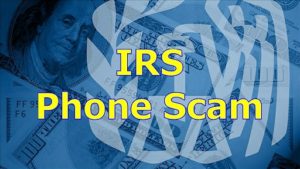IRS Phone Scam Leads to Police Raid, School Lockdown
On Feb. 8, 2016, police swarmed a house in Colorado Springs after a school went on lockdown due to IRS Phone scam. The victim, Jim Davis, received a phone call, alleging that he owed back taxes and telling him to withdraw money from the bank to pay his debt. Once at the bank, he told the manager, who informed him of the IRS phone scam. However, the scammer kept calling him, threatening to “arrest” him immediately if he failed to comply. The scammers then called the police, pretending to be the victim and claiming that the victim was now the perpetrator.
Police descended on the victim’s home. Although Davis was not there at the time, his 20-year-old daughter looked outside and saw all of the action. A nearby school where her son attended was placed on lockdown. Davis rushed home, uncertain if the calls he was now receiving from the police were legitimate or still from scammers.
The Colorado Springs Police Department continues to investigate the case, and they will be speaking with the FBI for more information.
Increase in IRS Phone Scams
Jefferson County officials reported an increase of fourfold in imposters who pretended to work for the IRS attempting to scam taxpayers. The persons behind the IRS phone scam became aggressive with victims, threatening to take them to court. Pete Weir, the district attorney, recommended simply hanging up on the individuals.
Another version of the scam begins with a phone call reporting an alleged problem with the victim’s taxes. The scammers are actually “phishing” for information in an attempt to steal the person’s identity… although they sometimes demand money as well.
One woman reported receiving three of these types of calls within the past 30 days. The scammers use intimidation, and they call from an area code outside Denver in an attempt to trick victims.
However, the IRS does not call or email taxpayers and instead only sends out letters or bills through the U.S. Postal Service.
The District Attorney recommends taking the following actions:
- Call the First Judicial District Attorney’s Office at 303-271-6931.
- Contact the IRS directly to advise them of a possible scam at any of the following numbers: 303-446-1675 or 800-829-1040 or 800-366-4484.
- Send suspect emails to phishing@irs.gov without opening attachments first.
- Call the FTC to file a complaint.
- Contact a professional Denver-based IRS tax resolution firm to clarify questions about scams, especially if you have questions about delinquent taxes. You can reach our team for a free consultation at 720-398-6088.

